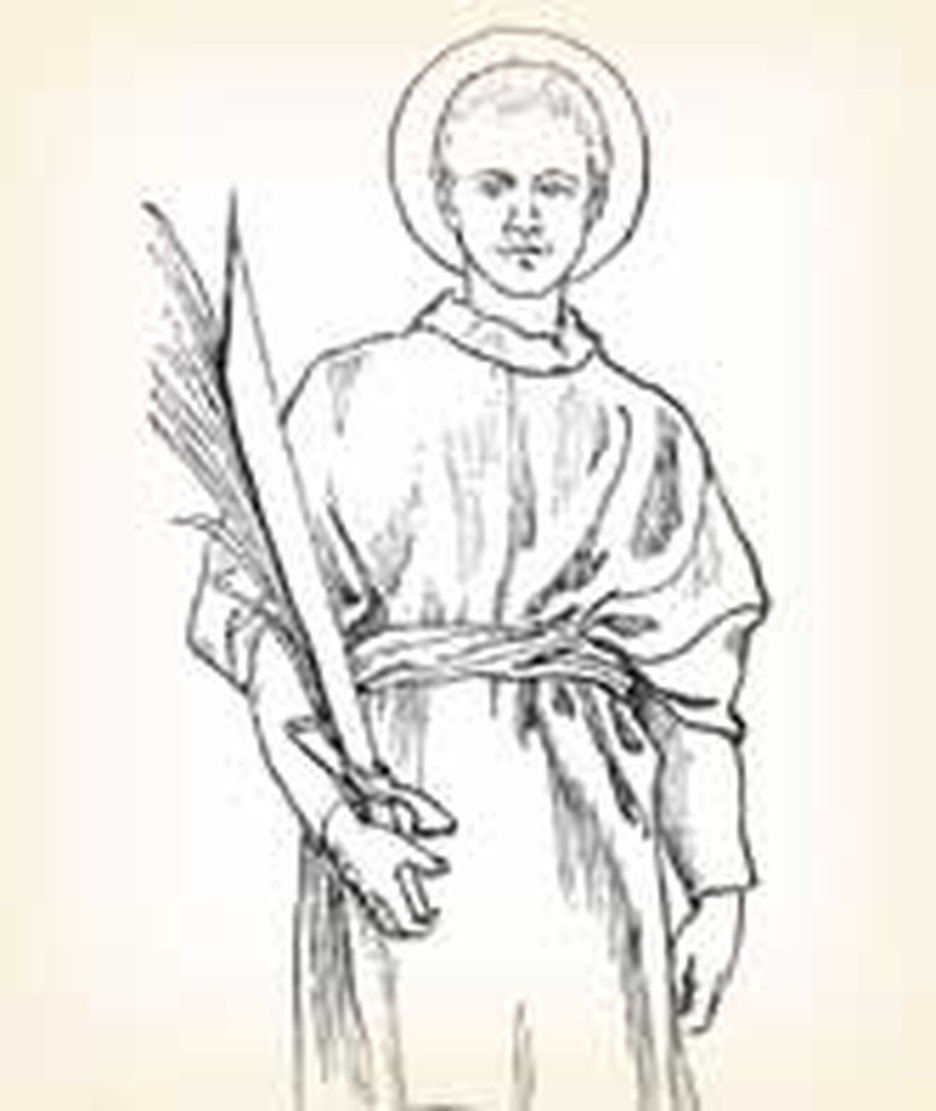
A fugitive's praise of God won Alban to Christ. The Roman emperor Septimus Severus hated Christianity. When he came to Britain in 208, he found Christians living there. In a fury, he ordered them put to the sword. A Christian priest, who is often given the name Amphibalus, fled before the imperial wrath. In the town of Veralum (now named St. Albans) lived Alban, a high ranking Roman soldier.
Something about Amphibalus' behavior led Alban to offer him shelter. In spite of his status as a hunted refugee, Amphibalus never ceased to praise God. His joy was so real that Alban was moved. He asked how that could be, was told about Christ and converted to Christianity.
The governor learned that Alban was harboring a Christian fugitive. He sent soldiers to haul in the priest. They were met by a man in a priestly robe. It was none other than Alban. When the governor saw this, he was furious. Since Alban had helped Amphibalus to escape, he said, Alban must bear the punishment due the priest. At the moment, the governor was preparing to pour out a libation (drink offering) to his gods. Now he ordered Alban to do so, saying he would spare him only on condition that he show his loyalty to the old gods by doing that.
Alban refused. "I worship and adore the true and living God, who created all things," he said.
After flogging Alban, the governor again asked him to renounce Christianity. Once more Alban refused. And so the governor ordered his execution. According to one legend, the place of execution was across a swollen river. The townsfolk, not wanting to see him die, tore down the bridge. But Alban, desiring to go to God, prayed to be able to cross--and the river dried up. According to another legend, Alban was thirsty and a spring welled up to quench his thirst.
Whatever actually happened, the soldier who was to behead Alban was so awed that he refused to do the job, becoming a Christian himself on the spot. A second soldier was found who cut off both of their heads. Legend says that the eyes of the soldier who struck the deadly blow immediately fell out.
Meanwhile, Amphibalus the priest, hearing that Alban was to die in his place, hurried to the place of execution and offered himself up. He, too, was killed. Modern research indicates that these deaths took place on this day, June 22, 209.
Impressed by these events, Alban's judge ordered the persecution to stop. Although the date and other details of Alban's martyrdom are shaky, there is not much doubt among scholars that he actually existed. His story was known around Veralum in the century after his death and he was mentioned in early writings. Churches were built in his honor. The British historian Gildas and the Saxon historian Bede both mention him in their histories.
Bibliography:
- "Alban, First Martyr of Britain." http://justus.anglican.org/resources/bio/189.html
- "Alban, First Martyr of Britain." http://people.smu.edu/canterbury/about/alban.html
- "Alban, St." Dictionary of National Biography. Oxford, 1956.
- Butler, Alban. "June 22: St. Alban." Lives of the Saints. Various editions.
- Orthodox America. "Orthodoxy's Western Heritage: St. Alban the Martyr." http://www.roca.org/OA/35/35e.htm
Last updated July, 2007







